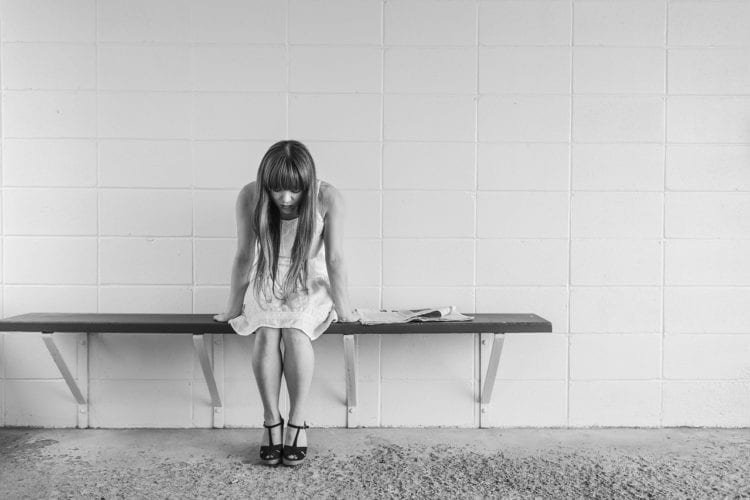It’s the easiest thing to use blame in marriage if things go wrong or not as expected. But it can also cause serious damage to your relationship. In this post, guest authors, Jáchym Jerie and Natasha Koo discuss how you can address blame in your marriage and what to do instead.
We all do things that we regret.
Sometimes we say hurtful things knowing that it isn’t right.
We know that it isn’t nice to blame other people, yet we still do it.
So what causes us to engage in dysfunctional behaviours like blame in marriage?
What makes hurtful actions perpetuate over time and how can you address blame in your marriage?
Read on to find out proven strategies and steps to take to let go of blame and reconnect through trust in your relationship.

How Does Blame In Marriage Affects Your Relationship?
Blame isn’t pretty.
Yet we’ve all been there and done it.
The truth is that as long as you ignore the issue of blame in marriage, you won’t be able to change it.
If you’re serious about getting rid of blame, then you have to look at it.
- When does it show up?
- How does it play out?
- What’s the end result?
Take some time to reflect on these questions.
The clearer you are on the behaviour and the impact it has on you and your partner, the better.
I know, it can be uncomfortable to actually look at this because it’s going against what you want to nurture in your relationship.
But it’s very much worth it.
When you do bring this pattern into awareness, you get to transform it.
The energy, time and space that blame once took can be freed up for more love, intimacy and connection.
Why Is Blame A Dysfunctional Behaviour?
It doesn’t matter whether you’re being blamed, blaming your partner, or blaming yourself.
In any of these cases, it doesn’t ever resolve the problem.
Instead, it artificially transfers the issue away from you.

As you can see in this article here, blame:
- Shifts responsibility away from you.
- Can be used as a tool to attack your partner.
- Can be used to defend yourself because there’s another scapegoat.
How Does Blame In Marriage Keep Recurring?
Blame is an unconscious behavioural pattern that thrives when we’re unaware of what we’re doing.
As long as we don’t acknowledge that blame:
- Is occurring.
- Is impacting us and our relationships in a negative way.
- Has a pay-off for us.
- Doesn’t actually help to move things forward.
We’ll keep doing it.
We keep blaming because we haven’t learned other, more productive ways to relate to our partners.
We’ve covered the perspective of being in the role of the blamer, let’s look at the one getting blamed.
Understanding both angles not only brings more compassion into your relationship but also helps you overcome blame in the long run.

Are You The One Getting Blamed?
Just like how your partner’s behaviour impacts you, your reaction to it also impacts the relationship.
By accepting blame in your relationship, you’re effectively allowing the pattern to run unchecked.
It’ll just perpetuate itself.
Ask yourself this:
How do I see myself so that I’ve been willing to put up with this behaviour?
We react and respond to the world in accordance with our beliefs about ourselves and the world.
For example, if I believe that I’m unworthy of love, I’ll react negatively to love.
As much as your partner has a responsibility to address their behaviour, you do as well.
We get it.
It might not be necessarily comfortable to look at your own part in the problem.
But remember, a relationship is made of two parts.
If you expect your partner to take a deep dive to change his behaviour then a self-reflection for you is equally important.

In order to start understanding and taking responsibility for your contribution to the issue, consider these questions:
- What happens when I get blamed?
- How do I react when blame occurs?
- What has prevented me from addressing blame?
- What has happened when I tried to address blame?
Reflecting on these questions will give you a clearer perspective on how you see yourself.
It’s better to look at your actions because they speak louder than any idea you think you have.
“How you act is an exact magnification of what you believe.”
JÁCHYM JERIE AND NATASHA KOO
Now that we’ve looked at blame from different angles, let’s look at how you can bring this understanding together and transform your relationship for good.
What Can You Do To Stop Blame In Marriage and Your Relationship?
Imagine a relationship that is filled with love, understanding and completely free of blame.
Every day you feel empowered, supported, and cherished by your spouse.
How would that change things?
That’s not a fairytale.
It’s possible with the Exceptional Relationship Formula.
Here’s how you can address blame in your marriage:
- Talk to your partner about this pattern.
- Listen to them and see how they see it.
- Discuss how you’d like to address it.
- Commit to the change.
Let’s look at each one of these points more closely.

Talk To Your Partner About This Pattern
I know.
It’s not a pleasant conversation to have.
However, if you don’t have the conversation, you won’t create the change that’s necessary.
Here’s an idea of how you can bring this topic up.
Please be aware that this is just one suggestion.
Use it as inspiration and come up with your own ideas.
“Honey, I’ve been thinking about our relationship lately and I’ve realized that there are a few areas in our relationship that don’t feel good to me. I’d love to hear your thoughts and get your input on how we can handle this situation better. Would you be open to that?”
This introduction is non-threatening.
It’s an invitation to look at something together.
Show up vulnerably and with your pure intentions.
Listen To Them And See How They See It
After your partner has agreed to talk to you, it’s time to deliver on what you’ve said before.
You want to listen to them and hear them out.
If you just barrage them with how you see it and what’s all wrong with the relationship, it’ll be a tough conversation.
Here’s how you can bridge it.
“I’ve noticed that I feel blamed whenever you bring up the topic of the dishes. What’s your view on what’s happening when we discuss this topic?”
Important points:
- You state how you feel.
- You don’t attack your partner.
- You ask how they see it.
Keep these points in mind because they make communication a lot easier.
Once your partner shares their view, allow yourself to really dive into their worldview.
What happens most of the time is that we take what’s being said personally.
I invite you to pause and listen to your partner as if you’re exploring a different culture you’re visiting.

What your partner shares are their interpretation and perception of the situation.
It’s not the truth, nor is it objective.
Your partner’s point of view is valid and important just like yours is.
Once your partner has shared their view, it’s time for you to share yours.
Only when both parties have fully expressed themselves is it possible to get to the next step.
Discuss How You’d Like To Address It
The cards are on the table.
What are you going to do about it?
A behaviour like blame can take a bit of time and effort to weed out of your relationship completely.
So I encourage you and your partner to literally draw and write out how you see the blame pattern plays out.
Then you can find practical steps to implement so you can stop it.
For example, you can use a code word that alerts your partner that they’re going into blame mode.
If blame does happen again and gets out of control, don’t worry about it.
Simply sit down with your partner once the emotions have cooled off and see what has happened.
It’ll help you to become even better at spotting the pattern and to stop it before it takes over.
It’s a game of bringing things into your awareness and not letting them happen unconsciously like they used to before.

Whatever your plan is, it’s important that you’re both on board and on the same page.
You’re addressing the issue as a team.
You want to avoid becoming like a police officer who’s reinforcing rules.
Addressing the issue is going to benefit you, your partner, and your relationship.
Commit To The Change
Once you’re clear on how you’re going to address the issue, stick to it.
You can have all the talks in the world.
If you don’t follow up with what you’ve discussed, you’re wasting your time.
That’s why it’s so important to be clear on the impact the behaviour has.
You want to make sure that you truly feel what it means to receive or inflict blame.
If this conversation stays on an intellectual level, you’ll not have the proper commitment to really seek change.
Let this be the beginning of a healthy and respectful relationship where your communication works.
Take this as the opportunity to grow what your past hurts and commit to the dream relationship that you actually deserve.
Your past doesn’t define you.
Your mistakes don’t define you.
What you do next with the strategies given in this article can turn your relationship around.
If, on the other hand, you need assistance from a professional but need help knowing how to get the mental health care you need (and how to pay for it), check out this article.



Jachym and Natasha are seriously lovely people. I met and connected with them online a while back and really enjoyed our time together.